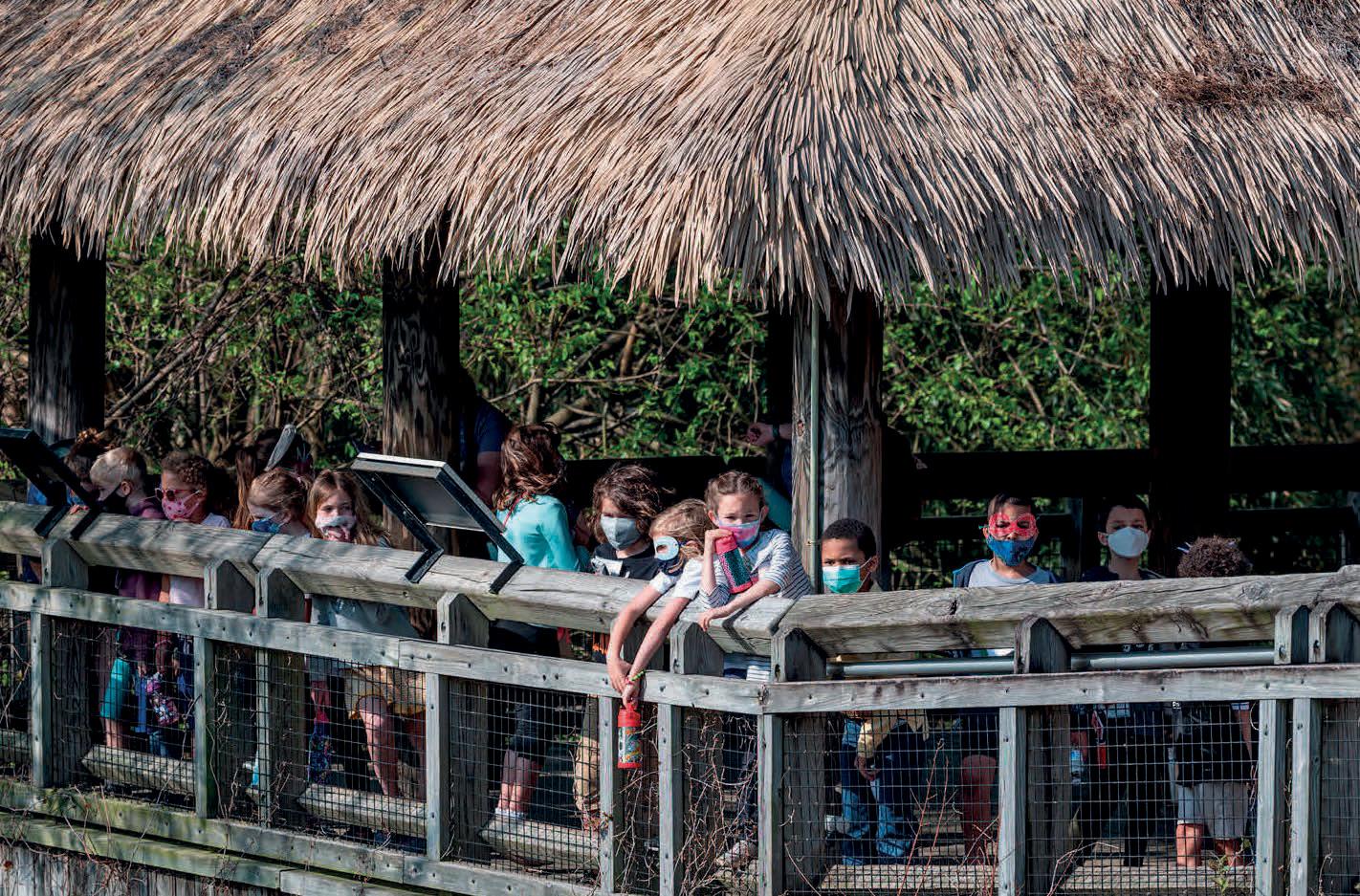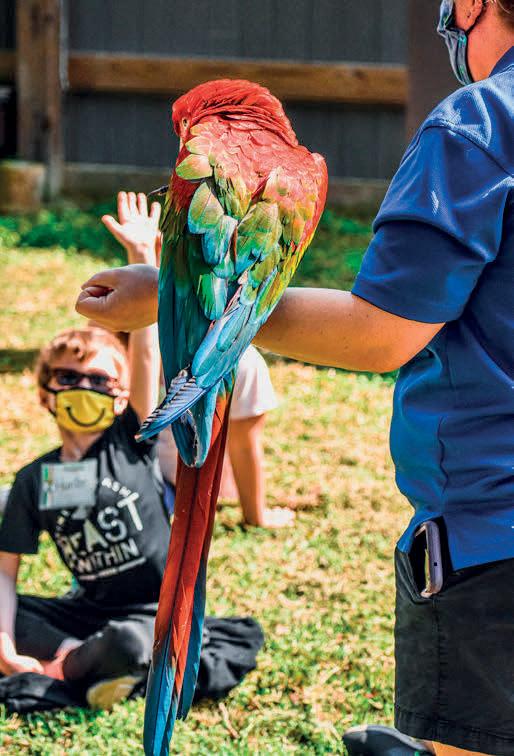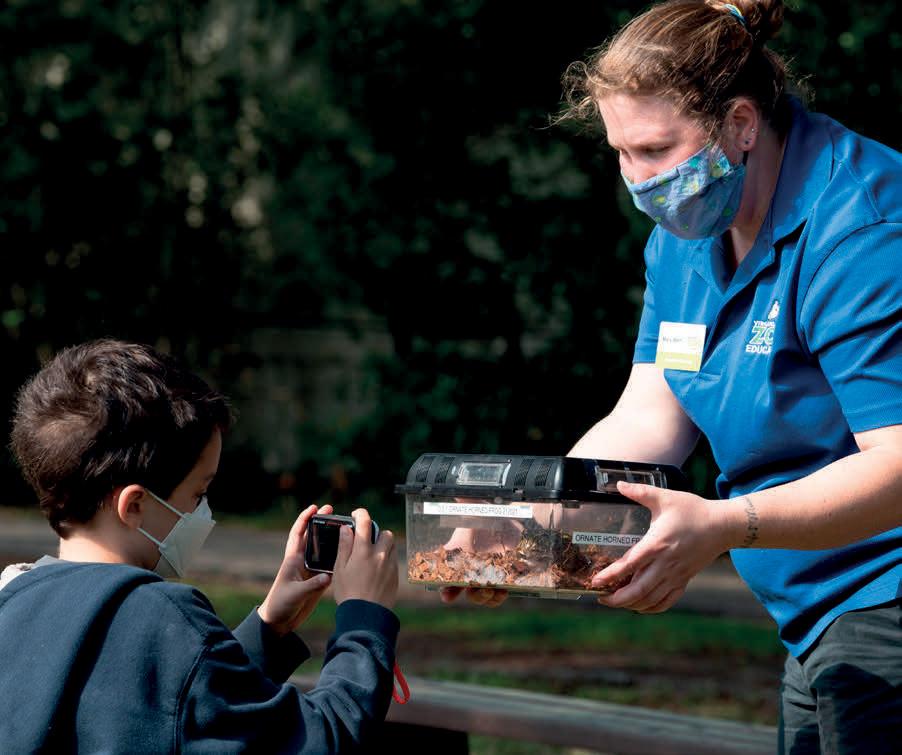
6 minute read
Kids need camp this summer more than ever before
camp
‘Kids need camp this summer more than ever before’: What Jewish summer camp will look like this year
Shira Hanau
(JTA)—Last year at this time, the message out of Jewish summer camps was one of doom and gloom.
In April 2020, the Union for Reform Judaism announced that COVID would force a closure of its camps for the summer, affecting some 10,000 kids. In May, the Conservative movement’s Ramah camps across the country followed suit.
This year, the outlook could not be more different.
Camps in the United States are opening again with a combination of testing and vaccinations, along with a better understanding of how COVID-19 spreads.
“It’s absolutely exhausting, but incredibly exhilarating,” says Rabbi Mitchell Cohen, national director of the National Ramah Commission, which runs the Ramah camps across the U.S. and Canada.
Cohen’s exhaustion has to do with the extra planning involved in fitting campers into existing space while allowing for social distancing and keeping campers in pods and outdoors as much as possible. And while most of Ramah’s 10 overnight camps are expected to open without issue, the group’s Canadian camp may have trouble due to Canada’s sluggish vaccine rollout and rising infection rates in Ontario, where the camp is located. (Cohen says the camp is exploring options for a new U.S. campus to serve campers from New York and Ohio who would typically attend the Canadian camp.)
At most Ramah camps, campers will be kept in pods of one or two cabins for most of their activities. Spaces like the dining hall, where hundreds of campers and staff would come together for meal times, will be subdivided with temporary walls or plastic sheeting to separate pods. Where birkat hamazon, the blessing after meals, was once a rollicking camp-wide songfest, some campers will have to step outside the dining hall to a tent to say the blessings this year to allow another shift of campers to eat in the hall at a reduced capacity.
“The last thing you want to do is to have a super spreader event at camp,” Cohen says. “We don’t need that. We can go one summer without everyone davening [praying] together or singing together.”
Most camps will be able to aggressively test their campers and staff, and receive results quickly enough to isolate and prevent the spread of the virus. Vaccinated staffers will add another layer of protection, ensuring that the adults at camp, who are more vulnerable to death and serious illness from COVID than children, will be protected. And with increased understanding of how COVID spreads and preventative measures— namely through mask wearing, social distancing, and activities held outdoors or in buildings with improved ventilation—keeping the virus under control seems doable, even if it does require extra preparation.
Helping to cover some of the extra costs for camps to buy tents, upgrade buildings, and increase capacity is $3.8 million in funding from the Foundation for Jewish Camp. Its grants are set to add capacity for 4,000 campers and will help the camps recoup some of the money that was lost last year. (Jeremy Fingerman, the foundation’s chief executive officer, says Jewish overnight camps lost about $150 million last year, the vast majority of which was covered by loans, cost reductions, donations, and tuition rolled over to this year.)
“We’re estimating that as a result of this grant, it’ll raise more than $16 million of revenue that will drop to the bottom line,” Fingerman says.
At the Olin-Sang-Ruby Union Institute, a URJ camp in Wisconsin more commonly known as OSRUI, camp director Solly Kane is looking forward to welcoming back about 900 campers after closing last year. Staffers, including about 35 from Israel, will be required to be vaccinated, and there will be surveillance testing throughout the summer.
While the camp won’t be bringing everyone together in one room for singing the way it usually might, OSRUI has ideas about gathering the entire camp.
“Something like a Friday-night song session, instead of being all together [inside], we’re in a soccer field with kids sitting in pods and wearing masks,” Kane says.
But no matter how much testing has to be done and how many events have to be reconfigured to work outside, the most important thing to Kane is to get the kids back to camp.
“It’s been a hard last year for everybody,” Kane says. “Kids need camp this summer more than ever before.”
Camp Modin in Belgrade Lakes, Maine, was one of the few Jewish camps to open last year, hosting about 300 children for one five-week session. The camp asked families to quarantine before camp, and tested campers and staff multiple times in the first weeks.
Co-director Howard Salzberg plans to follow the same playbook this year, though at a significantly reduced cost now that testing has become cheaper and more widely available.
“We learned a lot last year, so we don’t need to reinvent the wheel,” Salzberg says.
Modin campers will be asked to get a COVID test in the days before camp and will be tested on the first day—and possibly again with a rapid antigen test before boarding buses to camp.
“We have the ability to test, test, test,” Salzberg says. “That is so much more than we even had at our disposal last year and cost-wise it’s now affordable.”
Still, Salzberg is worried that parents this year may be less on guard than they were in 2020, when parents were overjoyed to be able to send their kids to camp at all.
“The thing that was most effective was that the parents were partners with us and they really, really locked down and they tested negative,” he says.
camp Camp JCC is filling fast, spaces are limited

The most common questions that people ask regarding summer camp, says Dave Flagler, Camp JCC director, concerns swimming.
“People want to know if swimming will take place,” he says. “’Of course, it will!’ I tell everyone.” Camp JCC, after all, is known for its successful swim program and beautiful pool facilities. And, this year, will be no different.
In fact, all aspects about camp are gearing up, Flagler says. And, he notes, “a few groups are just on the verge of starting a waiting list.”
That’s a good sign for day camps. Parents, it appears, are ready to send their children to a place where they are able to be active, happy campers for the summer.
Now in the later stages of preparation, Flagler says he is still hiring some senior counselors and specialists.
“We’ve got a great, safe and fun camp program planned that promises to be memorable for campers and counselors, alike.”


For information about Camp JCC, go to CampJCC.org or contact Dave Flagler at dflagler@ujft.org.
Camp JCC Open House
Learn about Camp JCC 2021 Monday, April 26, 8 pm To register, visit CampJCC.org




ZOO HIKES • ANIMAL ENCOUNTERS BEHIND THE SCENES EXPERIENCES • STORY TIME LEARNING LABS • CRAFTS • GAMES VIRGINIAZOO.ORG/ZOO-CAMPS










